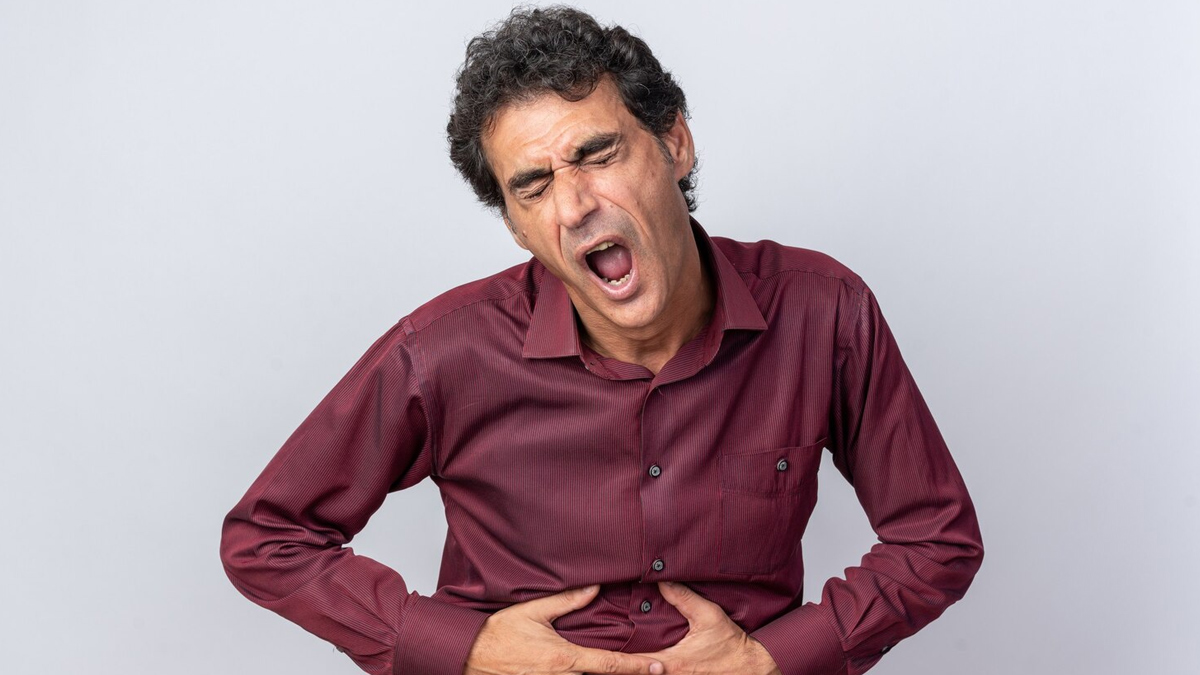
Ever felt a sense of tightness in the stomach – so much so that when you press on it, it feels like something solid is residing in your belly? If that is the case, it could be bloating, often triggered by excess gas, constipation, and food intolerances. It can result from eating high-fibre or high-fat foods, consuming carbonated drinks, or overeating and eating too fast. However, bloating from such dietary choices often resolves on its own.
Table of Content:-
Dr Amit Miglani, Director and HOD - Gastroenterology, Asian Hospital, explains, “Occasional bloating after a heavy meal is normal. But if stomach tightness is frequent, painful, or associated with other symptoms like unexplained weight loss, blood in stool, or vomiting, it needs medical attention.”
Also Read: Period Pain or Stomach Ache? Here's How to Know the Cause of Your Cramps
Common Digestive Causes Of Stomach Tightness

According to Dr Miglani, the most frequent digestive issues behind stomach tightness include:
- Indigestion and gas buildup due to spicy or fatty foods
- Irritable Bowel Syndrome (IBS), where the digestive tract becomes overly sensitive
- Constipation, leading to a feeling of fullness and pressure
- Food intolerances such as lactose intolerance or gluten sensitivity
- Overeating, which temporarily stretches the stomach
A 2013 study published in the Journal of Neurogastroenterology and Motility highlighted how common and disruptive bloating can be, affecting people of all ages with symptoms ranging from mild discomfort to a heavy, gassy feeling that interferes with daily life. While it often appears alongside conditions like IBS or functional dyspepsia, bloating can also occur on its own. Yet its exact cause remains unclear—factors such as excess gas, altered gut bacteria, and heightened gut sensitivity may all contribute.
Harmless Bloating Vs Something Serious

Distinguishing between harmless bloating and bloating associated with concerning underlying health conditions, Dr Miglani shares, "Most bloating episodes are harmless and pass once the body digests food. But gastroenterologists say red flags include:
- Severe or worsening abdominal pain
- Unexplained and sudden weight loss
- Persistent nausea or vomiting
- Blood in stool or black tarry stools
- Swelling that doesn’t subside
Dr Miglani notes, “The difference lies in duration and severity. Harmless bloating improves with lifestyle changes, but red-flag symptoms signal underlying conditions that require urgent evaluation.
Also Read: Beyond Indigestion: Health Conditions That Persistent Bloating Can Signal
Can Stress Or Anxiety Cause Bloating Too?
Multiple studies and health organisations recognise that stress and anxiety can contribute to bloating and other gastrointestinal issues by affecting the brain-gut axis.
Dr Miglani says, "Stomach tightness is not always about food," adding, "Anxiety and stress can directly affect digestion."
He explains, "The gut and brain are closely connected through what experts call the gut-brain axis. Stress may slow down digestion or increase sensitivity, creating sensations of bloating and tightness.
“We often see patients with no structural digestive disease, but their stress and anxiety manifest as abdominal tightness. Relaxation techniques, regular exercise, and counselling can help such cases significantly,” Dr Miglani adds.
When Should You Be Concerned?

Some major medical problems can present with symptoms similar to regular bloating:
- Ovarian cancer in women, which may begin with vague abdominal fullness
- Liver disease causing fluid accumulation in the abdomen
- Coeliac disease due to gluten intolerance
- Stomach ulcers or even gastrointestinal cancers
That’s why ignoring persistent stomach tightness can be risky.
Doctors recommend seeking medical advice if:
- Stomach tightness occurs frequently and interferes with daily life.
- Pain, vomiting, or unexplained fever accompanies the bloating.
- There is a family history of digestive or gastrointestinal cancers.
Final Word
Dr Amit advises, “Never ignore symptoms that linger. A gastroenterologist can run simple tests like ultrasound, endoscopy, or blood work to rule out serious causes. Early detection always improves outcomes."
Also watch this video
How we keep this article up to date:
We work with experts and keep a close eye on the latest in health and wellness. Whenever there is a new research or helpful information, we update our articles with accurate and useful advice.
Current Version
Sep 30, 2025 08:10 IST
Published By : Tenzin Chodon
